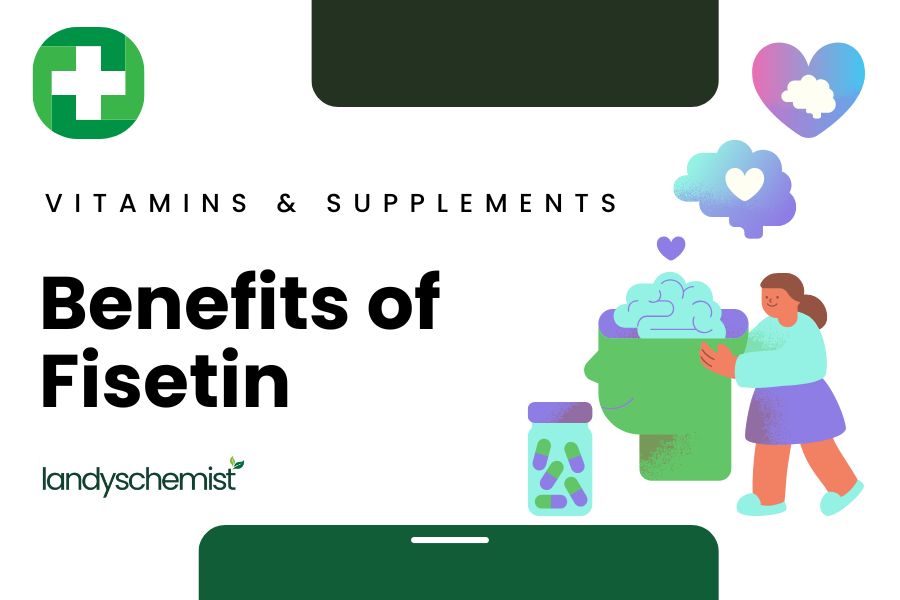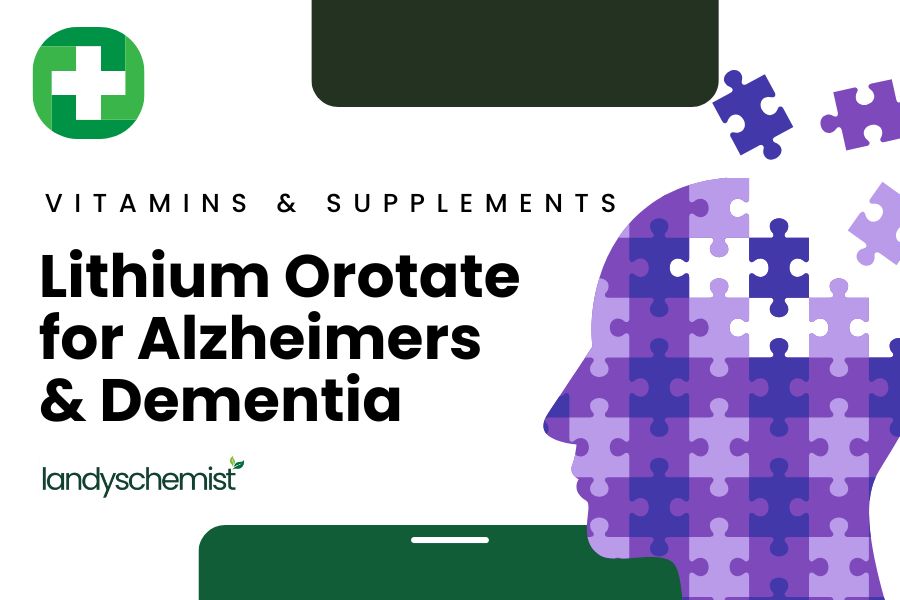
Are Painful Periods a Sign of Good Fertility?
No, painful periods are not a reliable sign of good fertility. While it’s common to assume that a strong, regular menstrual cycle is a healthy one, the presence of pain doesn’t necessarily indicate that your reproductive system is working optimally. In fact, painful periods can sometimes be linked to conditions that may negatively affect fertility. At Landys Chemist, we believe it’s important to approach menstrual health holistically - understanding both what’s typical and when to investigate further.
Jump to section:
- Why painful periods are a bad sign for fertility
- What painful periods indicate
- The good signs of fertility
- How to reduce painful periods
- FAQ's

Why Painful Periods Are Not a Reliable Sign of Fertility
- Pain doesn’t reflect ovulation health: You can experience intense menstrual cramps and still have irregular or anovulatory cycles.
- Prostaglandins cause pain, not fertility: Painful periods often result from elevated prostaglandins, which cause uterine contractions - not improved reproductive performance.
- Pain severity varies: Pain is subjective and influenced by factors like stress, inflammation, and individual pain thresholds - not by fertility status.
- No diagnostic value: Gynaecologists do not use pain as a measure of reproductive health or egg quality.

What Painful Periods Might Actually Mean for Your Fertility
Painful periods can sometimes be a red flag for underlying conditions - especially if symptoms worsen over time or are unresponsive to treatment:
1. Hormonal Imbalances
- Oestrogen dominance: May lead to thicker uterine lining and heavier, more painful periods
- Low progesterone: Can increase cramping and PMS symptoms
- Thyroid issues: Both underactive and overactive thyroid can disrupt cycles and increase pain
Neesha Desai, Pharmacist at Landys Chemist says, “For overall hormone balance support we recommend trying the Metagenics MegaMag Fem Balance Magnesium Powder which is specifically formulated to support menstrual cycle regularity, ovulation, and progesterone balance.”
2. Endometriosis
Tissue grows outside the uterus, causing pain during periods, sex, or bowel movements. May impact fertility in up to 50% of cases.
3. Uterine Fibroids
Non-cancerous growths that can cause heavy bleeding, pressure, and discomfort depending on size and location.
4. Adenomyosis
Endometrial tissue invades the uterine muscle wall, leading to heavy, painful periods. Often underdiagnosed and may co-exist with other conditions.
5. Pelvic Inflammatory Disease (PID)
A bacterial infection that may cause chronic pelvic pain, scarring, and fertility challenges. Pain may occur throughout the cycle.
6. High Prostaglandins or Inflammation
Excess prostaglandins increase uterine contractions, leading to sharper cramps - even without an underlying disorder.
7. Lifestyle-Linked Factors
- Chronic stress: May disrupt progesterone levels and worsen cramping
- Nutrient gaps: Low magnesium, zinc, or omega-3s are linked with more painful periods
- Gut health: Imbalanced microbiome may affect oestrogen clearance and inflammation
Neesha Desai goes on to say, “If pain is accompanied by symptoms like heavy bleeding, pain during intercourse, or irregular cycles, it’s advisable to speak to a doctor for further evaluation.”
What Are Good Signs of Fertility?
While period pain isn’t a reliable fertility indicator, there are several signs that have been linked to healthy reproductive function:
- Regular menstrual cycles: Consistent cycles between 24–35 days suggest regular ovulation
- Positive ovulation tests: A surge in luteinising hormone (LH) mid-cycle indicates likely ovulation
- Stable basal body temperature (BBT) shift: A noticeable rise in BBT after ovulation can reflect hormone balance
- Presence of fertile cervical mucus: Egg-white or slippery discharge around ovulation is a good sign of fertility
- Healthy hormone levels: Normal levels of FSH, LH, oestrogen, and progesterone support regular ovulation
- No underlying reproductive conditions: Absence of endometriosis, PCOS, fibroids, or PID supports conception potential
What Can Help Ease Painful Periods?
While it’s important to investigate underlying causes, certain supplements may help support menstrual comfort and hormonal balance:
- Magnesium: Multiple studies show 300mg/day magnesium significantly reduces cramp severity and duration. We recommend the Nutri Advanced Magnesium Glycinate Tablets which are well-absorbed, ideal for reducing menstrual cramps by relaxing uterine muscles and lowering prostaglandins.
- Omega-3 fatty acids: A 2012 study found omega-3 (1000mg daily) significantly reduced period pain and reduced the need for ibuprofen. Omega-3s shift prostaglandin production toward less inflammatory types, reducing uterine spasms and pain.
- Zinc: Zinc reduces inflammation and prostaglandin synthesis; it also modulates pain perception. A meta-analysis analysed 6 randomised controlled trials and found that zinc supplementation significantly reduced menstrual pain severity compared to placebo.
- Ginger: Whether it be ginger tea, ginger in food, or ginger supplements, Ginger has strong anti-inflammatory and antispasmodic effects.
At Landys Chemist, we stock a wide range of high-quality supplements designed to support women’s health, including fertility supplements.
Summary
Painful periods aren’t a sign of strong fertility. They could indicate hormonal imbalances or conditions that may affect reproductive health. If your pain is severe, changing, or persistent, consult your GP for proper evaluation. For nutritional support, explore evidence-backed supplements online at Landys Chemist.
Neesha Desai adds, “Painful periods are common, but that doesn’t mean they’re normal or harmless. If period pain is interfering with your daily life or linked with other symptoms like irregular cycles or heavy bleeding, it’s worth investigating further - especially if you're trying to conceive.”
FAQ’s: Fertility and Cramps
Are painful periods and fertility problems connected?
Painful periods aren't always linked to fertility problems, but in some cases, severe or worsening menstrual pain may be caused by underlying conditions like endometriosis or fibroids, which can affect fertility. If period pain is accompanied by irregular cycles or difficulty conceiving, medical evaluation is recommended.
Can menstrual cramps be a sign of ovulation?
Mild cramping around the middle of the cycle, known as mittelschmerz, can indicate ovulation. However, intense menstrual cramps during your period are not a reliable sign of ovulation or fertility and are usually caused by high prostaglandin levels rather than ovulatory health.
What does menstrual pain say about reproductive health?
Menstrual pain alone doesn’t reflect reproductive health or hormone balance. While some discomfort is normal, persistent or severe pain could suggest conditions like adenomyosis, pelvic inflammatory disease, or hormonal imbalances-all of which may impact fertility.
Are cramps linked to ovulation in a healthy cycle?
Ovulation pain may occur in some women, but not everyone experiences it. The presence or absence of ovulation cramps doesn’t confirm fertility status. Tracking ovulation with LH tests or BBT is a more accurate way to confirm regular ovulation.
What are reliable signs of good fertility?
Unlike menstrual pain, good signs of fertility include regular cycles (24–35 days), positive ovulation test results (LH surge), a consistent BBT rise after ovulation, fertile cervical mucus, and balanced hormone levels such as progesterone and estrogen.
Sources:
- Menstrual Cramps in Anovulatory versus Normally Ovulatory Cycles — SARS-COV-2 Pandemic Daily Data Plus a Meta-Analysis of Cramps and Anovulation
- The Association of Reproductive Hormones During the Menstrual Period with Primary Dysmenorrhea - PMC
- Analysis of the Relationship between Stress and Dysmenorrhea in Female Students
- Period pain | nidirect
- Pathophysiology of Heavy Menstrual Bleeding - PMC
- Endometriosis | NICHD - Eunice Kennedy Shriver National Institute of Child Health and Human Development
- Uterine fibroids - PubMed
- Empyema due to Bacteroides gracilis: case report and in vitro susceptibilities to eight antimicrobial agents - PubMed
- Correlation of perceived stress with monthly cyclical changes in the female body - PMC
- Efficacy of Zinc Supplementation in the Management of Primary Dysmenorrhea: A Systematic Review and Meta-Analysis
- Effect of omega-3 fatty acids on intensity of primary dysmenorrhea - PubMed
- The Gut Microbiome and Female Health - PMC
- Detection of ovulation, a review of currently available methods - PMC
- The reliability, acceptability and applications of basal body temperature (BBT) records in the diagnosis and treatment of infertility - ScienceDirect
- Cervical mucus patterns and the fertile window in women without known subfertility: a pooled analysis of three cohorts - PMC
- Effectiveness of Magnesium on Menstrual Symptoms Among Dysmenorrheal College Students: A Randomized Controlled Trial
- Effect of omega-3 fatty acids on intensity of primary dysmenorrhea - PubMed
- Efficacy of Zinc Supplementation in the Management of Primary Dysmenorrhea: A Systematic Review and Meta-Analysis - PubMed
- Comparison of effects of ginger, mefenamic acid, and ibuprofen on pain in women with primary dysmenorrhea - PubMed
This article is for informational purposes only and is not a substitute for medical advice. Consult your doctor or healthcare provider before starting any supplements, treatments, or remedies. Ensure a varied and balanced diet and a healthy lifestyle before considering supplements. Supplements should not replace a balanced diet.










